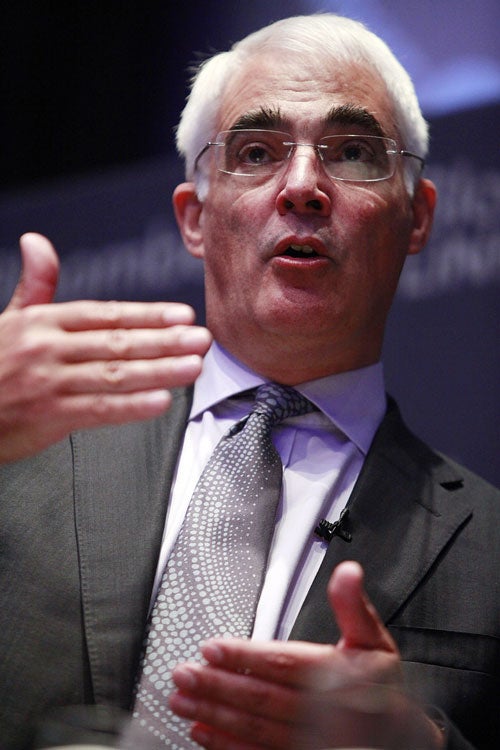Darling: Stubborn Brown cost Labour the election

Your support helps us to tell the story
From reproductive rights to climate change to Big Tech, The Independent is on the ground when the story is developing. Whether it's investigating the financials of Elon Musk's pro-Trump PAC or producing our latest documentary, 'The A Word', which shines a light on the American women fighting for reproductive rights, we know how important it is to parse out the facts from the messaging.
At such a critical moment in US history, we need reporters on the ground. Your donation allows us to keep sending journalists to speak to both sides of the story.
The Independent is trusted by Americans across the entire political spectrum. And unlike many other quality news outlets, we choose not to lock Americans out of our reporting and analysis with paywalls. We believe quality journalism should be available to everyone, paid for by those who can afford it.
Your support makes all the difference.Gordon Brown's refusal to admit to the need for spending cuts cost Labour the election, Alistair Darling suggested yesterday.
In the clearest indication yet of the tensions that dominated the final months of the last government, the former chancellor said Labour "won the war" in the dramatic events of the banking crisis – when the Royal Bank of Scotland was two hours from collapse – but "failed miserably to win the peace" in setting out how the country could prosper in the future.
Mr Darling admitted to "pretty difficult times" and "sparks" with Mr Brown, who resisted even using the word "cut" for months. A Cabinet split eventually emerged between ministers, including Mr Darling, who believed the government should be honest with voters and a camp which favoured creating a dividing line with the cost-cutting Conservatives.
"We lost too much time during the course of 2009 arguing this investment-against-cuts business," Mr Darling told BBC Radio 4. "The electorate are very grown up. They know what the position is, they know why borrowing went up, they know borrowing has to come down."
Noting relations between chancellors and prime ministers "frequently end in tears", Mr Darling insists he and Mr Brown are "on good speaking terms". But the detail of behind-the-scenes rows "are still sufficiently raw that I'm not going to trawl over them".
Mr Darling famously sparked a storm when he claimed in an interview two years ago that the economic crisis was the worst for 60 years. "Quite a few people went nuts actually," he said. "Looking back, one of my regrets is we won the war, if you like – the bank system didn't collapse, the economy is now growing, unemployment is lower than people thought it was, house repossessions are lower. But we didn't win the peace. We failed miserably to win the peace."
This week he will use a speech to say Labour must counter the notion that there is "no alternative to massive cuts".
Subscribe to Independent Premium to bookmark this article
Want to bookmark your favourite articles and stories to read or reference later? Start your Independent Premium subscription today.
Join our commenting forum
Join thought-provoking conversations, follow other Independent readers and see their replies
Comments